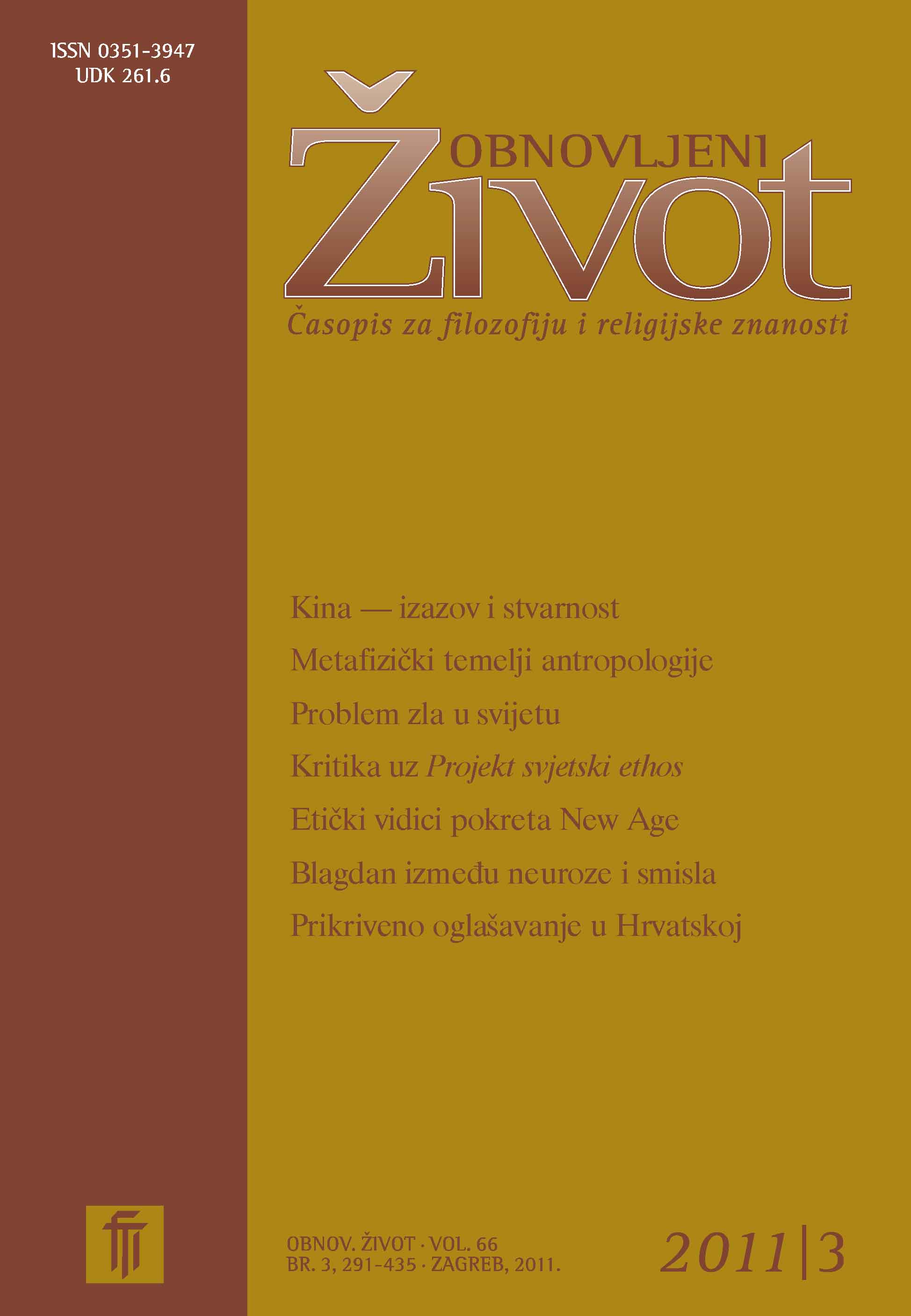The Metaphysical Foundations of Joseph de Finance's Anthropological Reflection
Is classical metaphysics a philosophy of the object or does it encompass the subject with his subjectivity?
Keywords:
Joseph de Finance, Aristotel-Thomas Aquinas, classical metaphysics, being-actus essendi, subject-object, fundamental affirmation, totality of beingAbstract
At the core of J. de Finance's philosophical investigation is man and his activity under the aspect of his relationship with, the other« (alius, aliud), the focus being on the ethical implications of intersubjective relations. In dealing with these issues he begins with the conviction that anthropology can guarantee an integral approach to all dimensions of human existence only if rooted in a particular metaphysical context and this, he claims, is to be found in classical metaphysics. This article seeks to investigate the basic determinants of de Finance's metaphysics which are the basis of his anthropology. The perspective taken in reflecting upon these issues may be expressed by the question: is classical metaphysics a philosophy of the object and does it encompass the subject with his subjectivity? We shall set forth from the criticism directed to classical metaphysics from the context of contemporary philosophy by certain protagonists who denounce it for being exclusively a philosophy of the object and the objective aspect of reality (essence), and that as such it is not a suitable introduction to the world of the subject. We shall attempt to demonstrate that their concept of existence in classical metaphysics contains a fundamentally flawed interpretation, particularly in the Thomistic strand. In light of this we shall establish that the concept of being in the metaphysics of Thomas Aquinas in its original form can be understood correctly only as the actus essendi. Likewise, the subject and subjectivity represent an authentic aspect of being as understood in this way, and so a realistic possibility is opened for the development of a metaphysics of the subject on classical foundations.
Downloads
Published
Issue
Section
License
Jednom prihvaćeni članak obvezuje autora da ga ne smije objaviti drugdje bez dozvole uredništva, a i tada samo uz bilješku da je objavljen prvi put u Obnovljenom životu. Uredništvo će obavijestiti autora o prihvaćanju ili neprihvaćanju članka za objavljivanje.
Članci objavljeni u časopisu se, uz prikladno navođenje izvora, smiju besplatno koristiti u obrazovne i druge nekomercijalne svrhe.


